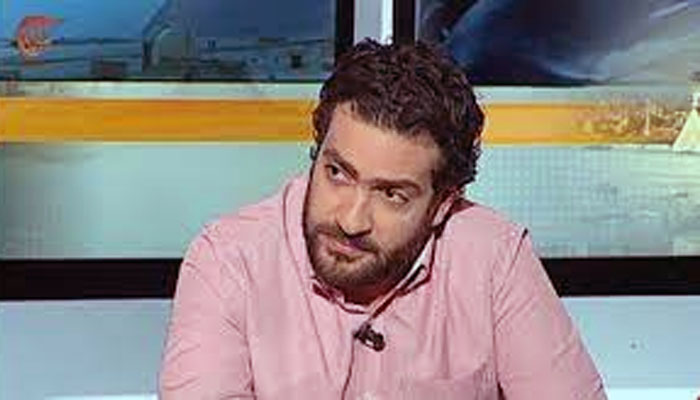
Afrasianet - Muhammad Farag - The widespread popular opposition in Egypt to normalization with the occupation has prevented the movement of currents enthusiastic about normalization in the Egyptian state from going beyond the formula of "cold normalization", which is what Israeli studies continue to blame Egypt for.
The broad popular opposition in Egypt to normalization with the occupation has prevented the movement of currents enthusiastic about normalization in the Egyptian state from going beyond the formula of "cold normalization", which is what Israeli studies continue to blame Egypt for.
A number of researchers attribute the term "cold peace" to the well-known Egyptian politician Boutros Ghali, on the grounds that the Egyptian normalization agreement with the occupation was more than a truce and less than a "positive peace".
The heroic operation of the Egyptian soldier, Mohamed Salah, ignites a set of facts in the "cold normalization desert", including:
1. The broad popular opposition in Egypt, which is confirmed by most opinion polls, has restricted the movement of currents enthusiastic about normalization in the Egyptian state from going beyond the formula of "cold normalization", which is what Israeli studies continue to blame Egypt for, and this is represented in:
(a) For the moment, Egyptians need special security permission to travel to occupied Palestine; Despite the presence of an occupation embassy in Cairo, this security measure is still present, which can be attributed to
3 reasons; First: the security concern buried in the fabric of the Egyptian state’s institutions from the Israeli espionage that does not stop working. Second: the embarrassment of the anti-normalization popular circles.
Third: the attempt to ease congestion among the Egyptian cadres working in the relevant institutions.
(b) Despite the signing of the normalization agreement, civil and civil associations in Egyptian society are still isolating and punishing normalizers in writers’ associations, intellectuals’ gatherings, and political initiatives, and no party in Egypt has dared to change this custom or approach it.
(c) Israel believes that Egypt has refused to establish a “private sector for normalization,” and blames it for monopolizing normalization procedures within the limits of “cold normalization”;
Trade exchange remained confined to a certain category of merchants, did not expand, and personal political openness to “Israel” was not possible, including the revocation of Tawfiq Okasha’s membership in Parliament in 2016, after he was hosted by the Israeli ambassador at the time, Haim Koren.
It is usually said that normalization with Egypt was enabled by state institutions, but it did not gain popular acceptance, and perhaps it is more correct to say that, in addition to its inability in popular circles, it was unable to completely establish official institutions, and was unable to penetrate the awareness of the cadres of these institutions.
And now, the heroic operation of the soldier in the army institution, Mohamed Salah, comes to perpetuate this principle.
2. Over the past decades, Israel has bet on liberalizing Arab societies, which means preparing it to accept homosexuality in the same package with acceptance of normalization.
This stems from the hypothesis that the high dose of liberalism that rejects traditions, religion, and any behavioral determinants accepts normalization.
It can be said that this project has failed today with its two wings; absolute liberalization and normalization; Neither the meetings of US ambassadors to establish associations supporting homosexuality in Arab countries succeeded, nor did normalization succeed. Hence, currents in "Israel" were betting during the wave of the "Arab Spring" on the rise of a group of liberalized youth ready to accept normalization, but then discovered that they were betting on a fragmented, confined and disorganized group, to find themselves today in front of the image of a young man in his twenties from the Qalyubia Governorate, east of the Nile.
He was imbued with hostility to the occupation and solidarity with Gaza. Israel finds itself stuck in Egypt between two options. Either encouraging alternative options from the bureaucratic and military bloc, and thus the possibility of the birth of an option that adopts the dissolution of the normalization agreement, and perhaps enthusiasm for the option of war, or continuing with the bloc that does not prefer to go beyond the limits of cold normalization, in order to preserve civil peace within a society that rejects normalization.
3. The Israeli organization "IMPACT" monitors school curricula in Arab countries, as part of its endeavor to explore the awareness of future generations. This organization issued a report in April of this year on the Egyptian curricula, and analyzed 271 textbooks of different levels.
In the essence of the work of this organization is that it is trying to reassure, for example, that resistance poems have been removed from the Arabic language curricula, and to be reassured about the content of religious curricula (How do Islamic religion books define jihad?
Do Christian religion books say that the Jews crucified Christ? How do history books define colonialism? And what do they say about it? History of the Jews in Egypt? Do you mention anything about the Holocaust?
Do social science books talk about strained relations with Iran and Turkey?).
Although this organization concludes in its report that there is a "slow improvement" in the curricula of grades 1-5, and no "improvement" in grades 6-12, it finds itself in front of a young man who absorbs the special narrative about the history of the occupation from society.
The facts that the Egyptian soldier ignited are that the state does not have options beyond the limits of cold normalization due to the solid popular rejection, and that the Israeli waiting for a young liberal generation is a process that cannot be bet on, and that the change of curricula, which is led by donor agencies such as “USAID” in coordination with the occupation ( Despite its danger and the need to confront it), it did not prevent Mohamed Salah and other Egyptians from deviating from the fragile text.

